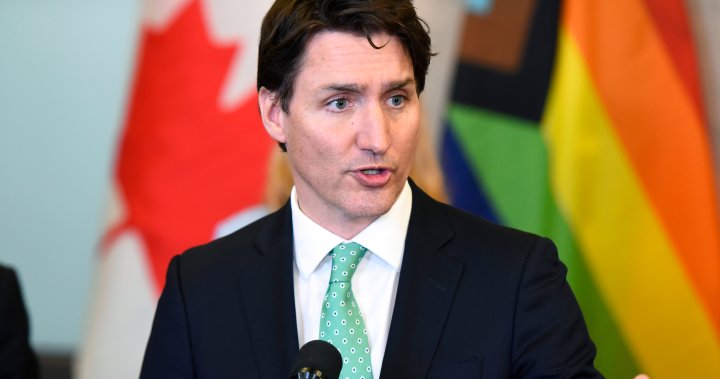LGBTQ2 activists are expressing concern over Prime Minister Justin Trudeau’s decision to stay on as leader of the Liberal party despite decreasing public support. They fear that a Conservative government led by Pierre Poilievre would be detrimental to the LGBTQ2 community. Poilievre has made statements about restricting access to puberty blockers for minors and keeping transgender athletes out of women’s sports and changing rooms. Activists believe that removing Trudeau as leader could increase the Liberal party’s chances of winning the next election, which must take place by Oct. 20, 2025.
Sarah Worthman, executive director of the Newfoundland and Labrador Queer Research Initiative, is particularly worried about the potential harm a Conservative government could bring to LGBTQ2 Canadians under Poilievre’s leadership. She suggests that the Liberals would have a better shot at defeating the Conservatives in an election if Trudeau stepped aside, although she does not specify a replacement. Meanwhile, Celeste Trianon, who assists trans individuals in Quebec with legal name and gender marker changes, believes the Liberals should model the U.S. Democratic party, which saw an increase in support after Vice-President Kamala Harris became the nominee.
A spokesperson for the Conservatives responded to inquiries by sharing Poilievre’s previous comments on LGBTQ2 issues, including his support for providing refuge to persecuted LGBTQ2 individuals globally and asserting that “female spaces should be exclusively for females.” Despite the concerns raised by LGBTQ2 activists, Randy Boissonnault, a federal cabinet minister and former special advisor to Trudeau on LGBTQ2 matters, believes that Trudeau is best suited to lead the Liberal party in the upcoming election. Boissonnault highlights Trudeau’s advocacy for LGBTQ2 rights, suggesting that the prime minister is a champion for the community and its concerns.
The activists’ apprehension about the potential consequences of a Conservative government under Poilievre’s leadership stems from his past statements on LGBTQ2 issues, such as restricting access to puberty blockers for minors and keeping transgender athletes out of certain spaces. They argue that these policies and beliefs could have harmful effects on LGBTQ2 individuals if implemented. While some activists believe that the Liberals would have a better chance at beating the Conservatives in the next election with a new leader, others maintain that Trudeau’s track record as a LGBTQ2 rights advocate makes him the ideal candidate to lead the party.
As the political landscape in Canada evolves and the next election approaches, LGBTQ2 advocates are calling for strategic leadership decisions within the Liberal party to ensure their community’s interests are upheld and protected. Some activists are pushing for Trudeau to step aside in favor of a new leader who could strengthen the party’s position against the Conservatives. However, others argue that Trudeau’s commitment to LGBTQ2 rights and experience as a champion for the community make him the most suitable candidate to lead the Liberal party in the upcoming election. The debate highlights the ongoing importance of LGBTQ2 representation and advocacy within Canadian politics.













